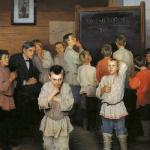(1) Mission accomplished? COVID-19 infections continue to spiral out of control in Europe. Any progress Europe made in controlling the coronavirus is now completely gone, as well as the premature gloating.
lockdown
Let's be honest. As we approach late autumn and then winter in the northern hemisphere, nobody knows what's going to happen. We may see another surge in coronavirus cases, or we may not.
After the coronavirus crept out of China earlier this year, Europe became the epicenter of the pandemic. In response, nations across the continent implemented fairly harsh lockdowns.
As I wrote previously, I was held hostage on an extended stay in Poland from February to August due to the corona
Of all the things we have lost this year due to the COVID-19 pandemic – from the people we love to the jobs that put food on the table – one of the more pernicious is the loss of faith and confidence that Americans have in their public health inst
As we debate the pros and cons of reopening public schools in the midst of the COVID-19 pandemic, there are multiple factors that must be considered prior to making a decision.
What's the best way for young people to avoid having babies and acquiring undesirable microbial species in their nether regions? Abstinence. It works every single time. Young people should wait until they're married.
Several months into the coronavirus pandemic, we still don't have a good understanding of SARS-CoV-2. The often contradictory information we get from scientists and public health officials reflects this.
As I mentioned previously, I've been marooned in Poland for a few months due to the coronavirus pandemic. Poland, along with several other Eastern European countries, implemented a very severe lockdown.
"Now is the winter of our discontent," begins Richard III, one of Shakespeare's most famous plays.












